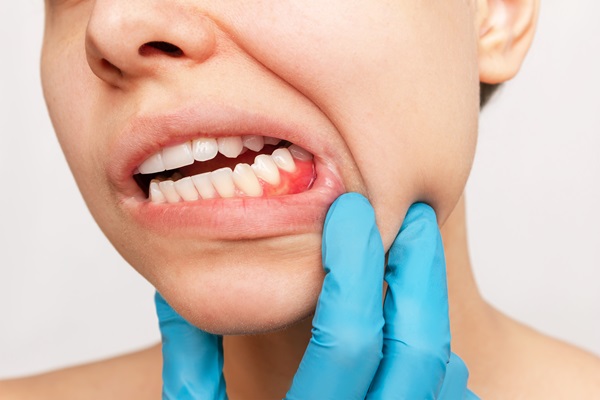Most people know about cavities, but what about gum disease? Both of these issues can affect your oral health, but people often overlook gum problems. There are varying levels of severity when it comes to this condition. Even minor bouts with it can cause pain and discomfort. If you do not treat it, you could suffer severe health effects. You should know how to identify the symptoms of this disease and what leads to it.
Clues that a person has gum disease
Like tooth decay, gum conditions can start out small. Over time, however, it is usually clear that there are oral health concerns. Diseased gums will usually bleed during brushing. Sometimes, the gums may bleed more frequently. The gums may also become inflamed and be tender to the touch. These are signs that the person has gingivitis, a milder form of the disease.
At more serious stages, periodontitis occurs. Symptoms may include receding gums and infections in the mouth. The infection can spread from there throughout the body. Cardiovascular problems can link to gum disease.
Not enough brushing
Occasional brushing (or never brushing at all) will likely lead to gum disease. Brushing with a soft-bristled brush and fluoride-based toothpaste removes food particles from the teeth and at the gumline. Doing this will prevent bacteria from building up and causing plaque and tartar. Brushing should occur at least twice a day. Inattention to these details will increase the individual’s chances of developing gingivitis and subsequently periodontitis.
Poor flossing habits
Flossing is just as important in the fight against gum disease. Flossing can dislodge particles of food from places that brushing may miss, such as in between hard-to-reach teeth. People of all ages should floss daily, preferably after eating or at the end of the day. Ignoring this habit will cause gums to swell and become tender. Bacteria will form and start to pull the gums away from the teeth.
Avoiding the dentist
Going to the dentist’s office may not be the most exciting thing, but it is vital. A semiannual dental checkup allows the dentist to clean the patient’s teeth and examine the individual for emerging problems. A patient may not recognize gum disease, but a dentist can spot this concern and start a treatment plan. People who rarely, if ever, go to the dentist may never get the professional care they need to combat this issue. Someone with gum problems may need to visit the dentist more often, as much as every two months.
Do your part to stay healthy
You do not want to contend with the effects of gum disease. The consequences could be severe for your oral health and oral wellness. Poor oral hygiene is a major culprit of this condition. If you stay on top of brushing and flossing, and if you visit the dentist, you can maintain healthy gums. Talk to your dentist today if you have concerns about how your gums look and feel.
Request an appointment here: https://dexterdds.com or call Scott Dexter, DDS at (916) 233-0910 for an appointment in our El Dorado Hills office.
Check out what others are saying about our dental services on Yelp: Gum Disease in El Dorado Hills, CA.
Related Posts
Silent and Dangerous: The Impact of Gum Disease on Your Health
Gum disease is a common yet often overlooked condition that affects millions of adults worldwide. It begins subtly, often without noticeable pain, making it a silent threat to both oral and overall …
What Can Happen If My Gum Disease Is Left Untreated?
Gum Disease is very serious; nonetheless, many people still ignore the signs and put seeking treatment for it on the back burner. Oftentimes, gum disease shows warning signs that are hard to miss, such as …
Do I Have Gum Disease?
A lot of people suffer from gum disease but don’t actually realize it, but thankfully, we are here to help! Gum disease is an unfortunate and harmful infection that affects the gums in a person’s …
Early Warning Signs of Gum Disease
Gum diseases can be extremely painful and dangerous to the overall health of a person’s mouth. A lot of gum disease may go unnoticed until they are in the late stages, which can be extremely …


